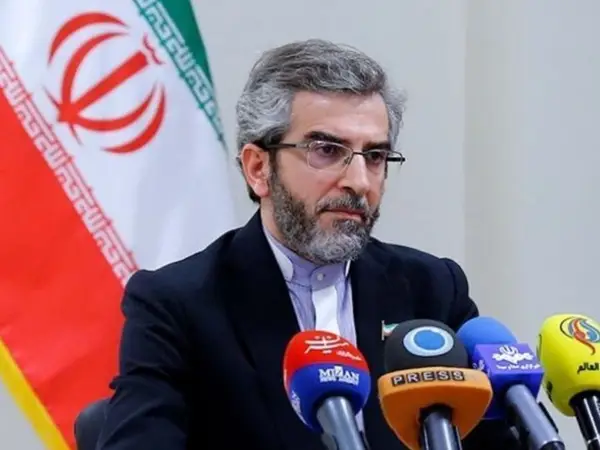Iran has presented two new sets of proposals in the Vienna nuclear talks, its lead negotiator Ali Bagheri Kani told Iranian news agencies Thursday.
Bagheri Kani said these could alter whatever was agreed before talks were suspended in June. “There is a new government in Iran, and a new negotiating team,” he said. “We need changes in the text.”
After four months of talks earlier this year, diplomats suggested there was 70-80 percent agreement over renewing Iran’s 2015 nuclear agreement with world powers, the JCPOA (Joint Comprehensive Plan of Action), which the United States left in 2018. The talks formally involve remaining JCPOA signatories – China, France, Germany, Iran, Russia and the United Kingdom – with the US taking part indirectly.
Bagheri Kani said that whatever was agreed previously had been a “draft” and that there was “no doubt” it was open to renegotiation.
Iran’ new proposals, he said, covering both sanctions and Tehran’s nuclear program had been circulated in writing to all JCPOA members. A European diplomat in Vienna confirmed to Reuters that draft documents had been received.
Bagheri Kani said he had already fielded questions, referring apparently to meetings with Enrique Mora, the senior European Union official chairing the talks, and the Russian delegation. The Iranian diplomat said there was a need for “new negotiations about these documents.”
Bagheri Kani gave no indication as to what precise proposals were in the Iranian texts. Talks before April struggled to agree precisely which US sanctions violate the JCPOA and exactly how the Iranian nuclear program, expanded and enhanced since 2019, should be brought back to limits set by the JCPOA.
Bagheri Kani stressed the “international dimension” of the talks. He said that “players outside the direct theatre” were “trying to create diversions and disruptions in the nuclear talks.” It was not clear whether he was referring to the US, or to Israel, which has made a range of recent accusations over Iran’s nuclear program and, after Wednesday’s International Atomic Energy Agency report highlighting Iran’s use of advanced centrifuges at its Fordow enrichment plant, called on world powers to leave Vienna.
With Thursday the fourth day of what are the seventh round of talks, Bagheri Kani said the Iranian delegation was ready to stay in Vienna as long as was necessary, but that other delegations might prefer to return to their capitals for consultation over the new Iranian texts.
“Of course, the other side can express their opinions about these changes,” Bagheri Kani said. “Many have been saying Iran is not serious and doesn’t want to talk and reach results. These proposals show Iran is serious.”
